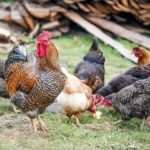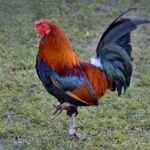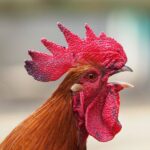Table of Contents
Raising chickens can be a rewarding experience, but like any other pets, they can also experience health issues.
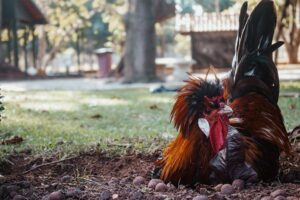
One such problem is when a chicken has trouble walking or standing. This issue could be due to various reasons, ranging from nutritional deficiencies to infections or diseases.
This article aims to provide a comprehensive understanding of this issue, its causes, possible solutions, and preventive measures.
Chicken Having Trouble Walking and Standing – Causes
Nutritional Deficiencies
Chickens require a balanced diet to maintain their health and function properly.
When they lack essential nutrients, such as vitamins A, D, E, and K, and minerals like calcium and phosphorus, they may develop problems with their skeletal system.
This can eventually lead to difficulty in walking and standing.
Infection and Diseases
Several infectious diseases can cause mobility issues in chickens. For instance, Marek’s disease, a viral disease that affects the nervous system, can lead to paralysis of the legs.
Similarly, avian encephalomyelitis, an infection that affects the brain and nervous system, can also cause tremors and weakness in the legs.
Injury or Trauma
Injuries or trauma to the legs, feet, or spine can significantly impact a chicken’s ability to walk or stand. This could be due to a fall, a fight with other chickens, or a predator attack.
Parasites
External parasites like mites and lice can cause severe discomfort, leading to changes in the chicken’s walking patterns.
Severe infestations can cause anemia, which may further weaken the chicken and affect its mobility.
Age-Related Issues
As chickens age, they may develop arthritic changes in their joints, leading to pain and difficulty in walking or standing.
Obesity
Obesity is a common problem in backyard chickens due to overfeeding and lack of exercise. Excess weight puts additional strain on the chicken’s legs and joints, leading to difficulty in movement.
Genetic Disorders
Some chickens may have genetic disorders that affect their skeletal structure and muscle development. These conditions can lead to lifelong mobility issues in chickens.
Diagnosing the Problem: Steps to Take
Careful Observation
The first step in diagnosing the problem is careful observation. Watch your chicken’s behavior closely for any changes or signs of discomfort.
Look for symptoms like limping, dragging of feet, reluctance to move, loss of balance, and changes in eating or laying habits.
Also, check for physical signs like swelling, sores, or discolored skin on the legs or feet.
Isolation and Close Monitoring
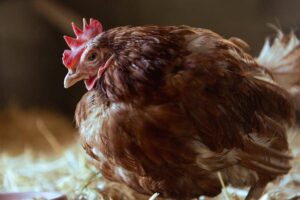
If you notice your chicken having difficulty walking or standing, it may be beneficial to isolate it from the rest of the flock.
This allows for closer monitoring of the chicken’s condition and prevents the potential spread of disease to other birds.
In isolation, you can also observe the chicken’s droppings, which might provide clues about its health.
Physical Examination
Conduct a careful physical examination of your chicken. Feel the legs for any signs of fractures, swelling, or other abnormalities. Check the feet for sores, bumblefoot (a bacterial infection), or mites.
Consultation with a Veterinarian
If the issue persists or worsens, it is crucial to consult with a veterinarian. They can conduct more thorough examinations, including blood tests, x-rays, or other diagnostic tests.
A vet can also rule out specific diseases or infections that might be causing the mobility issue.
Record Keeping
Keep a record of your observations, including the onset of symptoms, their progression, any treatments attempted, and their effects.
This can be very helpful when consulting with a veterinarian or tracking the progress of the chicken’s condition.
Nutritional Solutions for Mobility Issues
Balanced Diet
A balanced diet is the cornerstone of maintaining good health and mobility in chickens.
This includes a variety of fruits, vegetables, grains, and protein sources to ensure that they are getting all the necessary nutrients.
Calcium Intake
Calcium is crucial for bone health and strength. A deficiency can lead to weakened bones and subsequently, mobility issues.
It is recommended to boost calcium intake through foods like leafy greens, chickpeas, nuts, seeds, or crushed oyster shells.
Vitamin D
Vitamin D plays a significant role in the absorption of calcium. A lack of vitamin D can result in poor bone health, leading to mobility problems.
Foods like fish and eggs, as well as exposure to sunlight, can provide the necessary Vitamin D.
Regular Exercise
While nutrition is vital, regular physical activity is equally important for maintaining mobility.
Depending on the chicken’s condition, gentle exercises can help strengthen their muscles and improve their overall mobility.
Natural Ingredients for Bone and Joint Health
Certain natural ingredients, such as vitamin K2 as MK7 and non-animal chondroitin sulfate from fermentation, can help support bone and joint health.
Nutritional Interventions
Nutritional interventions can be an effective measure in preventing mobility problems. This could involve adjusting the chicken’s diet based on their age, body condition, or specific nutritional requirements.
Medical Treatments for Chickens with Walking and Standing Difficulties
Antibiotics or Other Medicines
In some cases, chickens may experience walking and standing difficulties due to parasitic infections.
These can be treated with antibiotics or other medicines to eliminate the parasite. Symptoms of such conditions include rapid, open-mouth breathing, lack of appetite, increased thirst, and drowsiness.
Pain Medication
If a chicken is in pain, it may have trouble walking and standing. Administering pain medication can provide relief and make the chicken more comfortable.
However, it’s important to consult with a veterinarian before giving any medication to ensure it’s safe and appropriate for the chicken’s condition.
Treatment for Specific Diseases
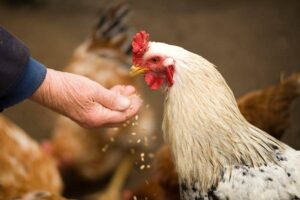
Certain diseases can cause mobility issues in chickens. For example, Marek’s disease, a common illness in small flocks, can lead to paralysis and difficulty walking.
Unfortunately, there is no treatment for Marek’s disease once clinical signs have begun, and diseased birds should be promptly removed from the flock and humanely destroyed.
Treating Leg and Foot Problems
Leg problems are more prevalent in fast-growing chickens and can result from mechanical trauma.
Conditions like Scaly Leg Mite infestation, worms, untrimmed nails, or injuries leading to Bumblefoot can also cause lameness.
Before consulting a vet, it may be beneficial to check for these issues and take appropriate action.
For instance, brushing perches once a month with a mixture of one part kerosene to two parts linseed oil can control certain foot problems.
Consultation With a Veterinarian
As always, if a chicken’s walking or standing difficulties persist or worsen, it’s crucial to consult a veterinarian.
They can perform thorough examinations, diagnose specific conditions, and prescribe appropriate treatments.
Preventive Measures to Avoid Mobility Issues
Proper Feeding Practices
Prevention is always better than cure. Ensure your chickens are receiving a balanced diet that meets all their nutritional needs. Avoid overfeeding, as obesity can also lead to mobility issues.
Regular Health Checks and Vaccinations
Regular health checks can help detect any issues early. Also, keep your chickens vaccinated against common diseases, and maintain good hygiene in the coop to prevent infections.
When to Consider Euthanasia
Evaluating Quality of Life
In severe cases where treatment is not successful, and the chicken’s quality of life is severely compromised, euthanasia might be the most humane option.
The Euthanasia Process
Euthanasia should always be carried out by a professional to ensure it’s done humanely and painlessly.
Conclusion
Dealing with chickens having trouble walking or standing can be challenging, but understanding the potential causes and solutions can help manage the situation better.
Always remember that maintaining a healthy environment and balanced diet for your chickens is key to preventing such issues. And never hesitate to seek professional help when necessary.

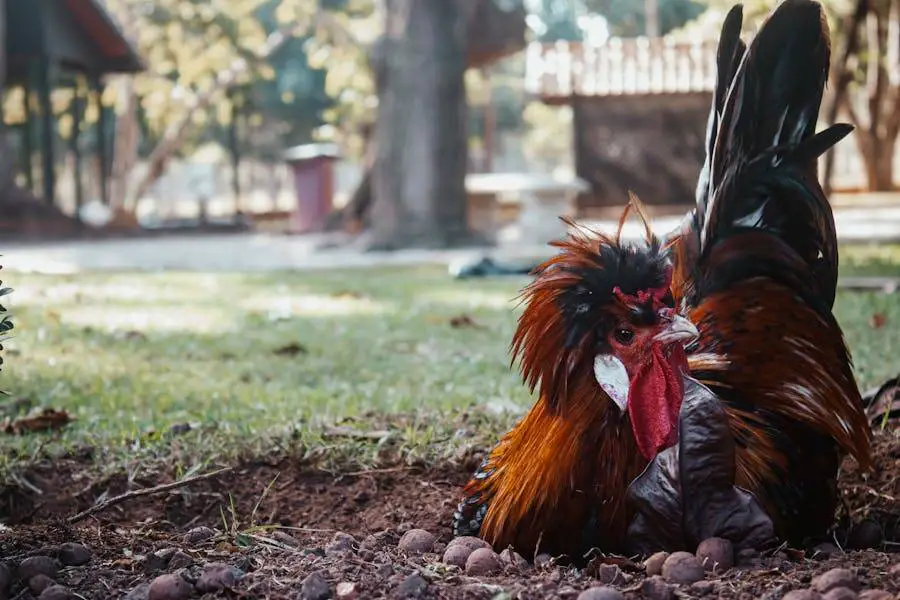
![Why Is My Standing Fan Making Noise? [Top Reasons] Why Is My Standing Fan Making Noise? [Top Reasons]](https://homesteadandprepper.com/wp-content/uploads/2021/10/Why-Is-My-Standing-Fan-Making-Noise-150x150.jpg)


